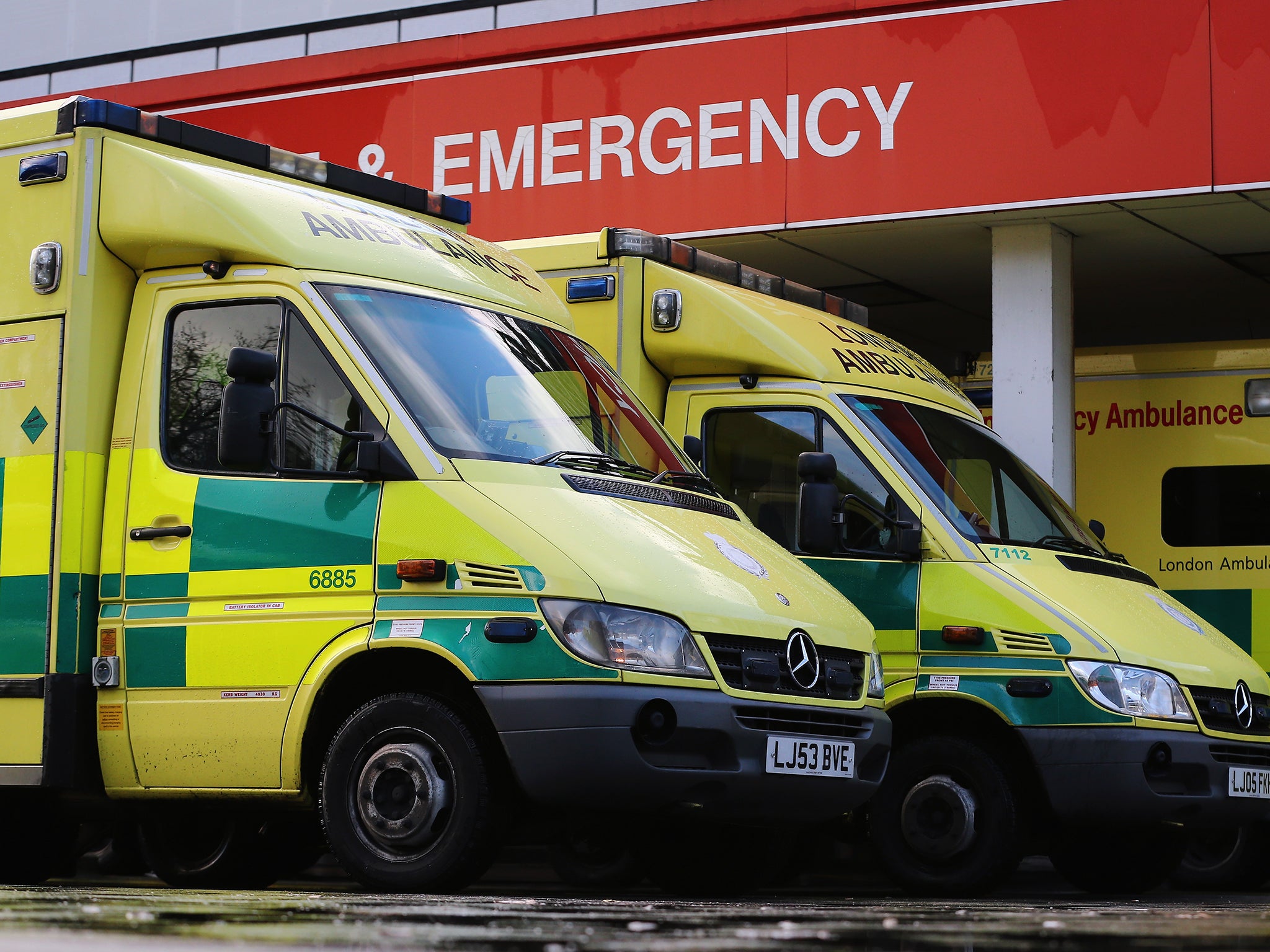‘Unrelenting’ pressure forces hospital to turn away non-emergency patients from A&E
One in four patients who attend A&E in Hull could be seen elsewhere say hospital bosses

Your support helps us to tell the story
From reproductive rights to climate change to Big Tech, The Independent is on the ground when the story is developing. Whether it's investigating the financials of Elon Musk's pro-Trump PAC or producing our latest documentary, 'The A Word', which shines a light on the American women fighting for reproductive rights, we know how important it is to parse out the facts from the messaging.
At such a critical moment in US history, we need reporters on the ground. Your donation allows us to keep sending journalists to speak to both sides of the story.
The Independent is trusted by Americans across the entire political spectrum. And unlike many other quality news outlets, we choose not to lock Americans out of our reporting and analysis with paywalls. We believe quality journalism should be available to everyone, paid for by those who can afford it.
Your support makes all the difference.A hospital in the northeast is to turn away patients coming to its A&E department for non-urgent complaints amid what it said was “unrelenting” pressure on services.
Hull University Teaching Hospitals Trust announced the new policy on Tuesday and warned patients who come its emergency department for routine care will find themselves having to travel to other sites, some as far as 30 miles away.
A&E departments across England have seen record levels of attendances in the last few months, causing long waits and delays for beds with some departments dangerously overcrowded.
The situation is so serious the Department of Health and Social Care request military aid support for four ambulance trusts across England last week.
In Hull, hospital bosses said the A&E, built to handle 350 patients a day, is now seeing 400 patients, with demand on services across the East Yorkshire region continuing to rise.
The issue of patients going to A&E for non-emergency care has long been a problem for the NHS, but rarely are patients sent away without being treated.
But the situation is so bad in Hull, bosses at the Hull Royal Infirmary have said patients must only come if it’s a genuine emergency. Others will be told they have to travel to primary care centres or one of four urgent treatment centres.
Dr Makani Purva, chief medical officer said in a statement on the trust website on Tuesday: “The whole of the health system across East Yorkshire is under significant pressure right now. This is likely to be due to a combination of more patients seeking help for problems they didn’t feel able to during the height of the Covid pandemic, rising Covid-19 infection rates in the local area, and our hospitals attempting to catch up on waiting lists and planned surgery which were also postponed during the pandemic.
“Staff are working incredibly hard to provide care for patients in challenging circumstances but we need people to use the full range of services available. One in four patients who attend A&E in Hull could have been treated more appropriately elsewhere, that’s around 100 patients every day.
“So from today, after an initial screening process, those arriving at A&E who could safely be cared for elsewhere will be referred on to one of several alternative care centres and providers. Doing so will help us to reduce waiting times for more seriously ill patients and ensure they receive the priority care they need in hospital, while enabling those patients with non-urgent needs to receive care more quickly from a suitably skilled health professional elsewhere.”
Last month, The Independent reported the trust had just two spare beds on one day with some patients facing waits of 15 to 20 hours for a bed while in the A&E department.
Dr Purva added: “It is important for people to know that, if they seek emergency care at Hull Royal Infirmary for a non-urgent condition, we will ask them to go to one of the urgent treatment centres or walk-in facilities in our region if it’s safe for them to do so.
“As far as possible, my advice would be for patients with non-urgent needs to call 111, to see a pharmacist, or visit one of the walk-in centres in our area as their first course of action.”
Patients who are unsure which is the best service for their needs can visit www.nhs.uk, call 111 who can book medical appointments if appropriate, or visit 111.nhs.uk for online advice.
The NHS has been in the grip of a record summer crisis since June with more than one million calls to 999 in July – the highest ever level – with every ambulance service in England at one stage last month being at their highest level of demand.
Hospitals across England have been forced to cancel operations, including for cancer, as Covid cases have risen, with 6,000 patients currently in hospital and 845 in intensive care – a fifth of the total ICU beds across England.



Join our commenting forum
Join thought-provoking conversations, follow other Independent readers and see their replies
Comments